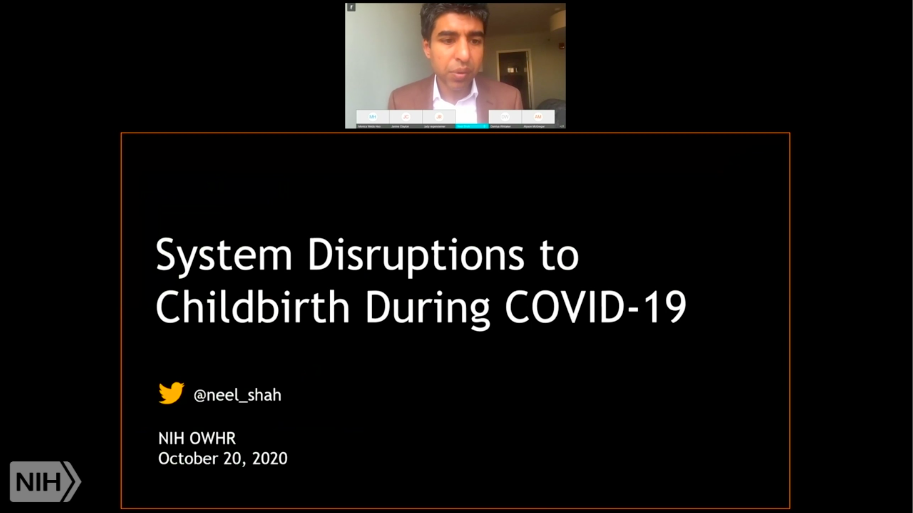System Disruptions to Childbirth Care During COVID-19

This is the second in a series of blog posts exploring COVID-19 from a women’s health perspective.
On October 20, 2020, the Office for Women’s Health Research (ORWH) at the National Institute of Health (NIH) held its 51st Meeting of the NIH Advisory Committee on Research on Women’s Health. The panel titled “COVID-19 and the Health of Women” featured insightful presentations on the pandemic’s distinctive impact on women’s health. This blog series will explore each of the three sessions.
In the second presentation of the panel, Dr. Neel Shah described the effects COVID-19 has had on pregnant people and their health care. It is unclear if pregnant people are more likely to be severely infected by COVID-19. Researchers have seen an upward trend of stillbirths globally, but it is unclear if this trend is directly related to COVID-19 infections. According to Dr. Shah, “The status of being pregnant does not seem to confer a disproportionate risk.”
Are pregnant people more likely to be severely affected and impacted by COVID-19? The answer is a resounding “definitely.” Disrupted doctor’s visits, more intimate partner violence and increased social isolation diminished prenatal care a great deal. Additionally, pregnant people are receiving less support during labor and delivery due to visitor restrictions and earlier discharges which result in a lack of education about how to transition to home life. Loss of employment or changes from private to public health insurance further compound the financial strain and increased social isolation brought on by the pandemic, especially during the postpartum period.
“The pandemic has taken every inequity of our society and thrown it into a pressure cooker,” said Dr. Shah. Maternal health strongly indicates the pervasive way in which racism affects American society. Among the general population, Native, Black, and Latinx people make up a disproportionate number of COVID-19 infections, severe cases, and deaths. More data is needed to better attend to the racial disparities exacerbated by the pandemic. On a positive note, Dr. Shah said a higher-performing health system is possible. Now is the time for health systems to make deliberate investments in building community trust, specifically in historically marginalized communities.
You can watch the full ORWH event here.
This blog post was written by Keila Miles, PhD, a science policy fellow at Research!America. The Science Policy Fellowship is sponsored by the Howard Hughes Medical Institute.




